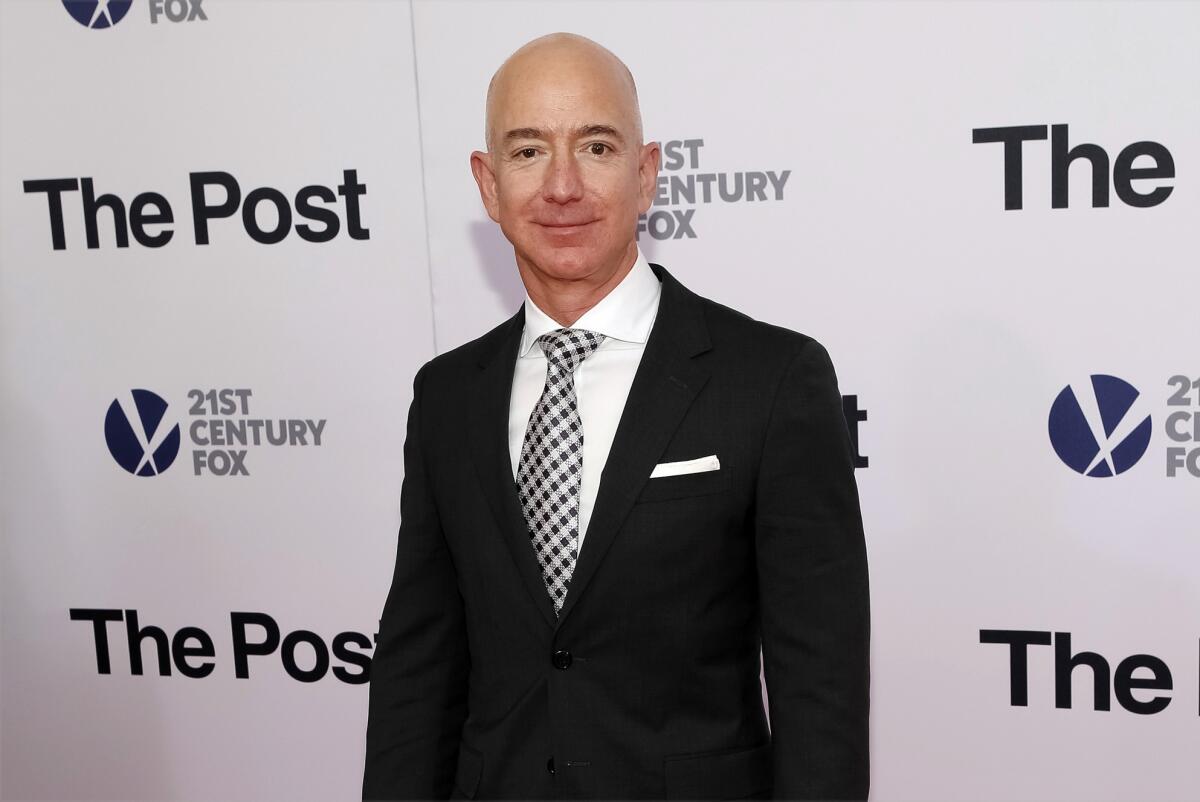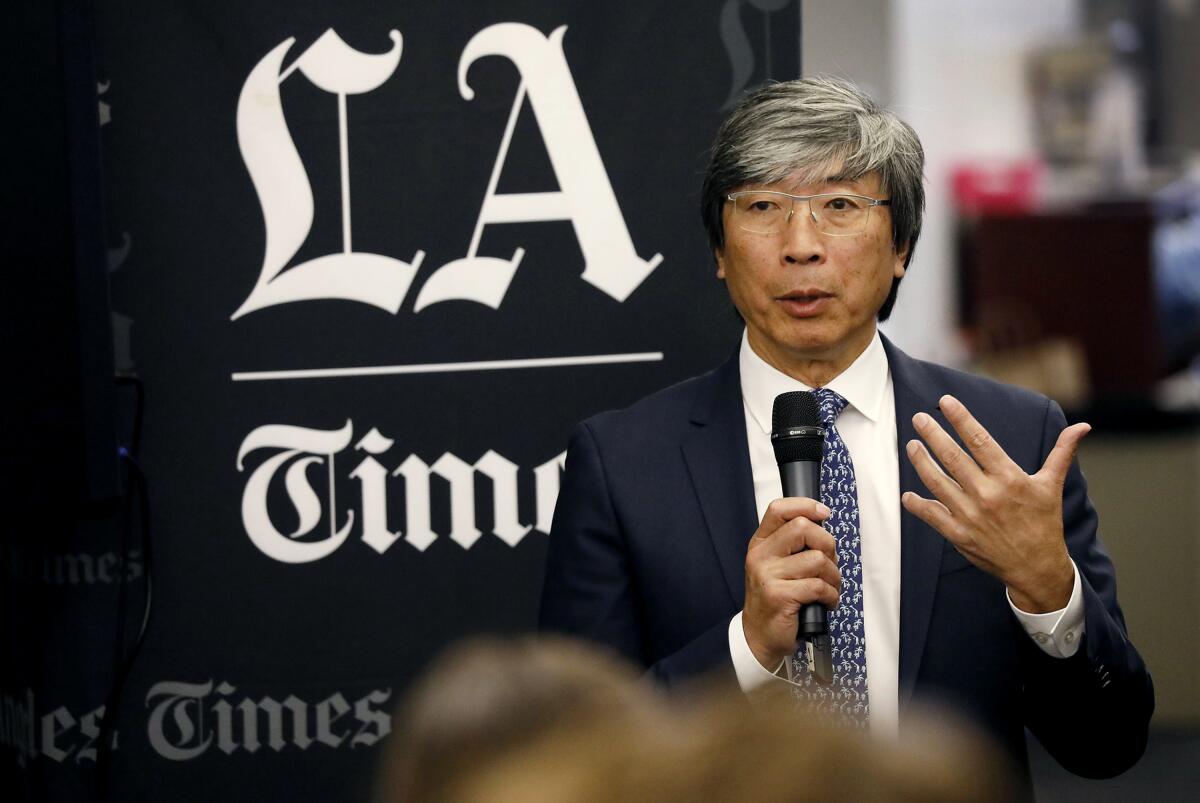
The Los Angeles Times and Washington Post have seen major subscription cancellations since their billionaire owners decided not to support the presidential race after the editorial boards of both newspapers offered to support the vice president Kamala Harris.
National Public Radio reported that the Post had more than 200,000 cancellations. Sources said the Times, which has fewer than 400,000 subscribers, has had more than 7,000 subscribers canceled for “editorial reasons.” The total number of cancellations in recent days has been higher, but internal data did not provide justification in these cases.
Those losses amount to about 8 percent of the Post’s roughly 2.5 million print and online readers and at least 1.8 percent of the Times audience. Any drop in subscriptions is painful for financially fragile organizations whose future depends heavily on building strong online audiences.
The Post suffered a particularly significant setback, according to inside sources, because it built much of its reputation on its unwavering criticism of Trump, adopting the slogan “Democracy Dies in Darkness.” Many readers said they subscribed to the paper because the paper that exposed the Watergate scandal 50 years ago also held Trump accountable for his lies, inflammatory and sometimes racist rhetoric and attacks on institutions.
“This is a self-inflicted wound on the part of the Washington Post,” Martin Baron, the Post’s former editor, said in an interview Monday. “Many of these readers signed up for the Post because they thought it would stand up to Donald Trump. And now they fear it’s a sign of weakness…and an invitation for Trump to continue to bully the owner of the Washington Post.”
This angry reaction sparked an extraordinary response from the newspaper’s owner, Amazon founder Jeff Bezos.
The Post published an article by the billionaire, one of the world’s richest men, in which he defended his decision not to support Harris, saying the tradition of presidential endorsements had not helped the public but rather served to “create a perception of bias.” A perception of non-independence.
He described the decision not to support the Harris-Trump race as an attempt to begin to rebuild trust.
“I wish we had made the change sooner than we did, at a time further removed from the election and the emotions surrounding it,” Bezos wrote. “This was inadequate planning and not an intentional strategy.”

Washington Post owner Jeff Bezos wrote that the tradition of presidential support had not helped the public but rather served to “create a perception of bias.” A perception of non-independence.
(Brent N. Clarke/Invision/Associated Press)
Bezos rejected allegations that he refused to support Harris in hopes of appeasing Trump, although he acknowledged that his network of business interests would always present appearances of potential conflicts of interest.
Times owner Dr. Patrick Soon-Shiong said last week that he had decided not to approve the project in an effort to ease sharp divisions over the election. He said he trusts readers to choose the best candidate.
Readers have accused the two venerable media outlets of refusing to take a stand on what they see as the dangers of another Donald Trump presidency.
“Our democracy is under great threat, and we should strengthen our institutions as an act of defiance against the threat of authoritarianism,” said Miguel Santana, CEO of the California Community Foundation and a prominent Southern California civic leader. “Choosing to ignore this situation is to shortchange our community at a time when we need the institution most. »
David Warren, a longtime college administrator now retired, said the Times’ lack of support made it seem like Soon-Shiong had no respect for years of critical reporting on Trump by his own newspaper.
Warren rejected the suggestion — raised by Soon-Shiong — that the Times should have provided its readers only with a side-by-side matrix on Harris and Trump, comparing their records and positions on issues.
“This excuse amounts to saying that we should give the fantasy of creationism the same validity as the scientifically proven truth of evolution. We shouldn’t do it,” Warren said. “It’s so disingenuous and it seems cowardly. And I don’t think the newspaper should be cowardly.”
Many longtime readers said they were reluctantly abandoning the Times but felt they had no other choice.
“I am absolutely heartbroken that I had to cancel because I truly appreciate all the hard and brilliant work you do every day as the profession withers around you,” said Stephanie Stanley of Tarzana, who formerly worked as a journalist in New Orleans. “Unfortunately, I don’t see how else readers could express their shock and disgust.”
Some Times journalists have joined readers in renewing their warnings about a potential unintended consequence of canceling a reader — undermining the Times’ ability to fund its journalism, just as the public says it wants public figures to be held responsible.
Matt Hamilton, who won a Pulitzer Prize for covering the scandals at USC – along with journalists Harriet Ryan and Paul Pringle – also pleaded for “heartbroken” readers to consider the impact of abandoning the Times.
“We have the largest newsroom west of the Mississippi,” Hamilton said. “These subscriptions ensure our journalism and allow for more people covering City Hall, local courts, the school district, more people in Sacramento and D.C. Canceling your subscription only hurts the journalism effort.”
The Times had received as many as 1,000 emails and letters protesting the non-approval as of midday Monday. About 90% of them criticized the newspaper and its owner.
At least some readers called not publishing Harris’ endorsement a good decision.

Los Angeles Times owner Dr. Patrick Soon-Shiong said he decided not to endorse the election in an effort to ease the sharp divisions surrounding the election.
(Al Seib/Los Angeles Times)
“A balanced approach is best,” wrote Keith Hagaman, a real estate investor who lives in Marina del Rey and Hawaii. “Congratulations to Dr. Patrick Soon-Shiong, although it may be too late. If he had done it a few years ago, so many subscribers would not have left.”
Lloyd del Llamas had years of experience working with journalists as a city administrator in several California cities. He credited Soon-Shiong with spending millions to strengthen the Times and acknowledged that even disappointed readers had to hold on or risk having to rely on the less in-depth coverage provided by the short-staffed suburban newspapers around Southern California.
Terry Tang, executive editor, runs the newsroom that produces The Times’ news pages. She also oversees the Opinion department, which includes the editorial board. The board, led at the time by editorial editor Mariel Garza, tried to persuade Soon-Shiong to endorse Harris. A series detailing the dangers of a second Trump term had also been planned but was not released.
“We understand that many readers are disappointed and angry that the Times did not support the president,” Tang said in a statement Monday. “We want our readers to know that we deeply appreciate the trust they place in us and that we work hard every day to earn that trust. But canceling subscriptions will harm our ability to provide the robust journalism our communities rely on.
Garza resigned following the blocking of a pro-Harris op-ed. She wrote in the Boston Globe on Monday that she suspected the owners of the two newspapers did not want their business interests harmed by “a vengeful Trump administration.” Both denied their company played a role in the decision.
The Atlantic published a review by Robert Greene, a Pulitzer Prize-winning opinion writer who resigned along with Garza and opinion writer Karin Klein.
“In this year’s race, a no-choice ignores Trump’s singular unfitness for office,” Greene wrote, “demonstrated time and time again by his dishonesty, his false claims that he won the 2020 election , his criminal convictions, his impeachment offenses, his race. -the baiting, his threats of reprisals against his opponents and many other characteristics that make him a danger to the nation.
Leaders of the union representing Times journalists also issued a new statement, saying Soon-Shiong should go beyond her social media posts and previous remarks by “writing an explanation for readers and staff detailing more in detail how he arrived at this decision and what it could be. means for future mentions.
Soon-Shiong told The Times on Friday that he had no regrets about the decision not to approve. He did not respond to a request for additional comment Monday.
Washington Post staff also pleaded with readers not to cancel.
Post columnist Dana Milbank criticized the owner for the move, which he said “sounds like cowering before a would-be dictator to protect Bezos’ business interests.” But he joined his colleagues in imploring readers not to abandon the paper because of the owner’s action.
“Boycotting The Post will harm my colleagues and me,” he wrote. “We lost $77 million last year, which required a[nother] a series of staff reductions through buyouts. The more cancellations there are, the more job losses there will be and the less good journalism there will be. … For all its faults, The Post remains one of the strongest voices for preserving our democratic freedoms.”
Jennifer Mercieca, a political historian and communications professor at Texas A&M and author of “Demagogue for President: The Rhetorical Genius of Donald Trump,” said every action taken in the final days before voting closed on Nov. 5 caused new levels anxiety among citizens. an already tense electorate.
And for those who fear Trump, any sign of his influence over powerful institutions only increases worry, Mercieca said.
“This wouldn’t have been a story if you all supported this story,” she said. “No one would have been concerned. But the fact that you chose not to is telling – and people interpret it with fear.
Times sWriter Kevin Rector contributed to this report.

